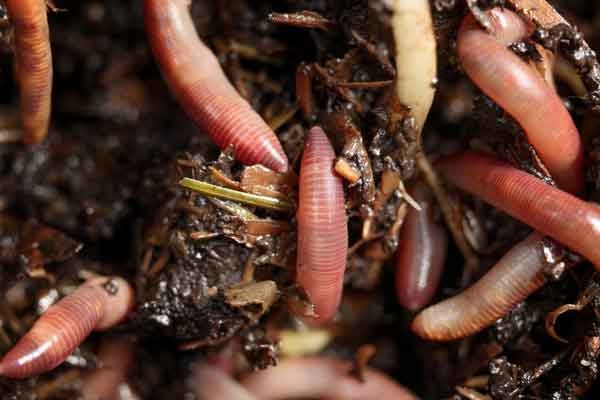
Picture this: you toss some food scraps into your compost bin, thinking it’ll just sit there for a while. But, thanks to earthworms, little by little, those scraps transform into rich compost that boosts plant growth. These guys are like nature’s recyclers. They eat organic material, break it down, and turn it into something invaluable. So, how exactly do they work their magic? Let me explain.
What Are Earthworms?
Earthworms are segmented worms that live in the soil. There are over 6,000 different species, but the most common ones are red wigglers and nightcrawlers. These little guys can be found in gardens, fields, and forests. They play a significant role not only in breaking down organic material but also in aerating the soil. This means they help improve soil structure, making it easier for plant roots to grow.
Imagine them as the tiny bulldozers of nature. When they tunnel through the ground, they’re not just making a cozy home for themselves. They’re also mixing up the soil and allowing air and water to reach the roots of plants. This all contributes to healthier ecosystems, and yes, a thriving garden too!
The Role of Earthworms in Decomposition
So, here’s the deal: earthworms are essential for the decomposition process. They consume decaying organic matter, such as dead leaves, fruit, and vegetable scraps. When they eat this material, it doesn’t simply vanish; it undergoes a fascinating transformation in their bodies.
As they digest this organic material, they break it down into smaller pieces. This process is called **fragmentation**. The worms’ gut contains bacteria and microbes that further decompose the material. Once they pass it out, it comes out as worm castings—nutrient-rich waste that acts as a powerful fertilizer.
Just think about it. Instead of letting food scraps rot untouched in a landfill, earthworms ensure those scraps are transformed into something that nourishes the soil. It’s a win-win for everyone!
How Earthworms Digest Organic Material
You might be wondering how exactly these slimy creatures digest what they eat. Well, earthworms have a unique digestive system that helps them break down organic matter efficiently. It starts when they consume food through their mouths.
Once the material enters their bodies, it goes through a series of steps:
- Ingestion: Earthworms take in food and soil through their mouths.
- Grinding: Inside their gizzard, small particles of soil grind up the food, making it easier to digest.
- Digestion: The food mixes with digestive juices and is broken down further by bacteria and enzymes.
- Excretion: The processed material is excreted as worm castings, which are rich in nutrients.
It’s a pretty efficient system, right? You can think of it as nature’s recycling plant. The entire process not only helps the worms thrive but also benefits the plants and the soil around them.
Benefits of Earthworm Castings
Now that we know how earthworms break down organic material, let’s talk about why their castings are so beneficial. Worm castings are often referred to as “black gold” by gardeners, and for good reason. Here’s what makes them special:
1. **Nutrient-Rich**: Castings are teeming with nitrogen, potassium, phosphorus, and other essential nutrients that plants crave.
2. **Microbial Activity**: They promote healthy microbial life in the soil, which helps plants absorb nutrients better.
3. **Water Retention**: Worm castings improve soil structure, helping retain moisture and providing better drainage.
4. **pH Balance**: They help stabilize soil pH, making it a suitable environment for plant growth.
When you add worm castings to your garden, you’re essentially giving your plants a boost. It’s like providing them with a multivitamin that helps them thrive.
Earthworms and Soil Health
The relationship between earthworms and soil health is a fascinating one. Healthy soil is crucial for successful gardening and farming. Earthworms play a key role in ensuring soil remains fertile and vibrant. They improve soil aeration, allowing roots to breathe and access nutrients more effectively.
Additionally, their burrowing habits create pathways for water and nutrients to flow. Picture this: every time an earthworm wiggles its way through the dirt, it’s creating a tiny highway for roots to navigate. This keeps the soil from becoming compacted, which can stunt plant growth.
Moreover, the organic matter they break down enriches the soil, encouraging more earthworms to move in. It’s a natural cycle that keeps on giving.
Encouraging Earthworms in Your Garden
If you’re interested in welcoming earthworms into your garden, there are some simple steps you can take.
– **Avoid Chemicals**: Pesticides and fertilizers can harm earthworms and disrupt their habitat. Stick to organic methods whenever possible.
– **Compost**: Start a compost pile or bin. Earthworms love decomposing materials, and they’ll flock to your compost for a feast.
– **Moisture Matters**: Keep your soil moist, as earthworms thrive in damp conditions. Too dry, and they might burrow deeper into the earth to find water.
– **Mulch**: Adding a layer of organic mulch can help retain moisture and provide food for earthworms as it decays.
By creating a welcoming environment for these hardworking worms, you’re not just helping them; you’re also enhancing your garden’s health and productivity.
Understanding how earthworms break down organic material opens a window into the incredible world of nature. These little creatures are more than just soil dwellers; they’re pivotal players in maintaining the balance of our ecosystems. From recycling waste to enriching soil, earthworms truly deserve our appreciation.
So, next time you see a worm in your garden or hear someone talk about composting, remember the important role these small but mighty beings play in our environment. As you sip your coffee and ponder over what to do with your food scraps, why not consider giving those earthworms a helping hand? After all, they’re doing their part to keep our planet green and healthy!
